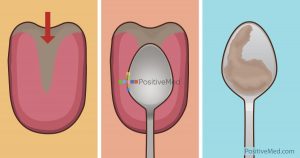
9 Ways to Know If Your Partner Is a Lovemaking Addict
[nextpage title=”…”]
There’s nothing wrong with closeness. It’s good to enjoy yourself, and having fun in the bedroom can be an important and essential part of the human experience. But there’s a difference between having a healthy love life that you control and letting your bedroom life control you.
Addictions can be hard to diagnose, and it can get even harder when trying to identify an addiction in such a personal and !ntimate area. Here are 9 indications that your loved one may be facing a lovemaking addiction.
• They Tend to Cover Their Digital Tracks
Brian Whitney, a former love addict, put this near the top of the list of things to watch out for in a lovemaking addict. If your partner tends to minimize his screen when you walk in the room or password-protect every single app on her phone, this can be an indication that he or she is hiding something.
• Excessive Attention to Personal Pleasure
Touching ourselves is a normal and natural part of life, but it is possible to overdo it. If you often wake up in the middle of the night and find your partner touching himself, even when you’ve just made love only a few hours earlier, this could be an indication of compulsive behavior.
RELATED ARTICLE: 4 Weird Lovemaking Disorders and How to Deal With Them
• Punctuality Problems
If your partner has a tendency to show up late to everything, they may only have problems with prioritization or procrastination. Punctuality issues, however, may also be a sign of addiction. Addiction Therapist Mike Weiss recently published a study indicating that when you put the rest of your life in second place behind lovemaking, even your most important appointments, this may be a sign you are beginning to let things get out of control.
• Unsafe Behavior
Regularly engaging in lovemaking without protection can be a sign of addiction. Although plenty of people allow all kinds of unsafe behavior into their lives, a lack of concern for personal safety and health can be a warning sign that, combined with many other small warning signs, can point toward an addiction.
RELATED ARTICLE: How to Know if You’re Dating a Player
[/nextpage] [nextpage title=”…”]
• ! ntimacy in Exchange for Cash
A study performed by the Addiction Research Center of the University of Texas indicated that if you find your loved one regularly pays for various forms of lovemaking – whether on the phone, online, or in person – a lovemaking addiction could be right around the corner.
• Serial Dating
Serial dating is another seemingly inconsequential behavior that can add up with the other seemingly inconsequential behaviors in this article to equal a possibly hidden problem. Dating equals lovemaking, and because lovemaking addicts often get bored quickly with their partners, if your loved one tends to date around a lot, this could be a another warning sign.
• Lack of Lovemaking Causes Irritability
PsychCentral magazine recently featured a study by Michael Herkov, Ph.D, which showcased some of the signs of a lovemaking addiction. Near the top of the list was irritability associated with a lack of horizontal tango. If your loved one gets frustrated and annoyed when unable to engage in lovemaking, this could be a danger sign.
• Dishonesty
Lying, or lying by omission, about lovemaking behavior can also be a sign of addiction. Many addicts lead double lives in order to hide their addictions, and if your partner’s stories seem questionable, there may be a problem. Dishonesty about daily activities or whereabouts can also be a sign that there is something wrong.
• The Fact That You Are Reading this Article
Just the fact that you are here with us today could be an indication of a problem. Your instincts and feelings can be evidence of your brain subconsciously putting things together things that you haven’t even consciously realized yet. If you are suspicious of your loved one, there is probably a reason.
Recently, I had to confront a friend of mine who I had noticed was constantly sleeping with his coworkers. After talking with him in depth, he admitted that his life was spiraling out of control and we were able to get him the help he needed. Don’t be shy about talking to your partner if you are worried about his or her health.
[/nextpage]








